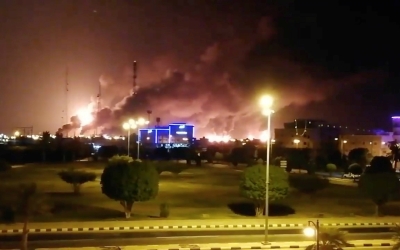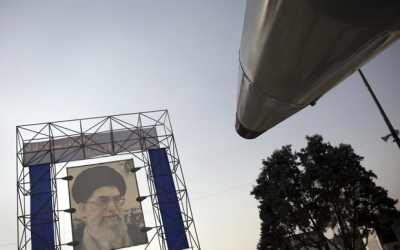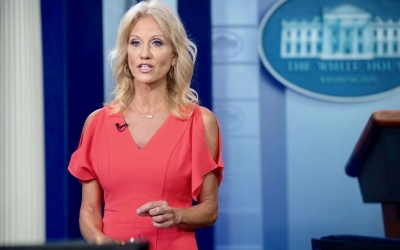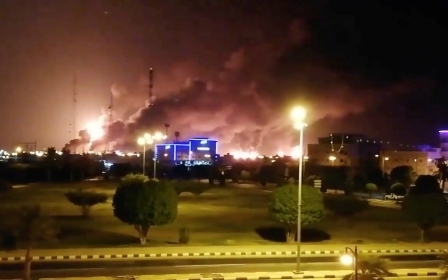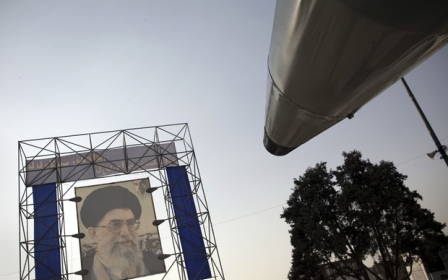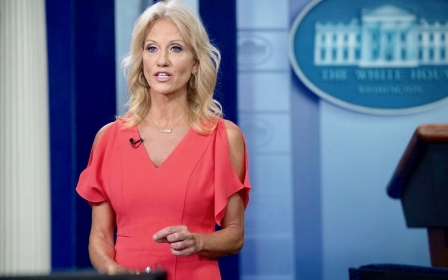Trump says US is 'locked and loaded' for potential response to Saudi oil attack
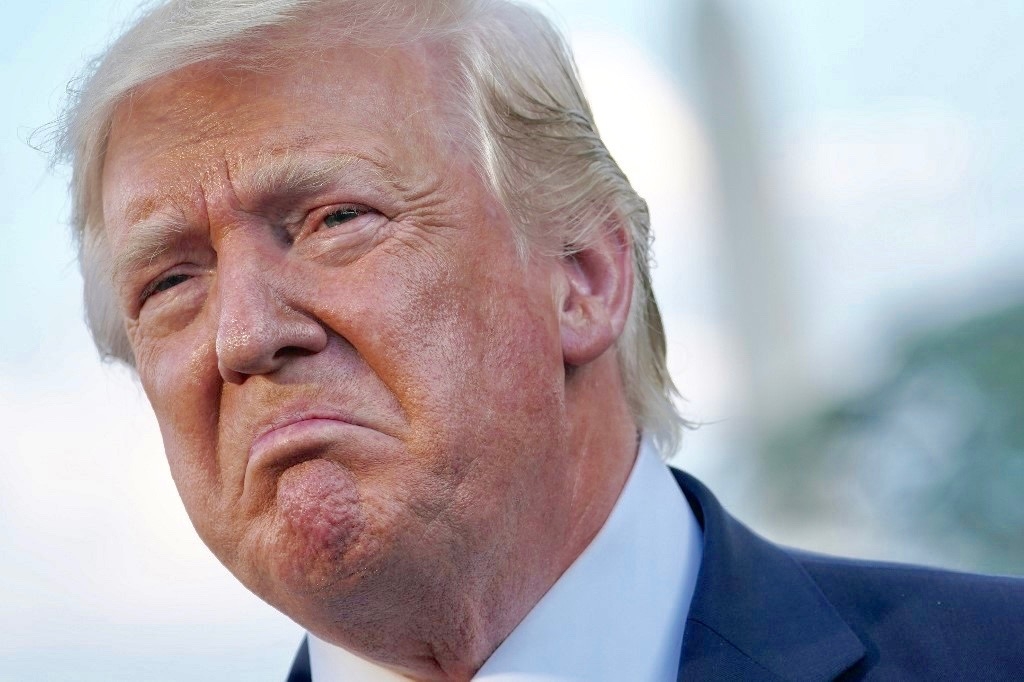
US President Donald Trump said on Sunday that the United States is "locked and loaded" for a potential response to the attack on Saudi Arabia's oil facilities, after a senior official in his administration said Iran was to blame.
"There is reason to believe that we know the culprit, are locked and loaded depending on verification, but are waiting to hear from the Kingdom as to who they believe was the cause of this attack, and under what terms we would proceed!" Trump said on Twitter.
He said he had authorised the use of the US emergency oil stockpile to ensure stable supplies after the attack, which shut 5 percent of world production, according to Reuters.
"Based on the attack on Saudi Arabia, which may have an impact on oil prices, I have authorised the release of oil from the Strategic Petroleum Reserve, if needed, in a to-be-determined amount sufficient to keep the markets well-supplied," Trump said.
Oil prices surged more than 15 percent at the open on Sunday on worries over global supply and soaring tensions in the Middle East. State oil giant Saudi Aramco said the attack on Saturday had cut output by 5.7 million barrels per day.
Earlier in the day, a senior US official told reporters that evidence from the attack, which hit the world's biggest oil-processing facility, indicated Iran was behind it, instead of the Yemeni Houthi group that had claimed responsibility.
Iranian Foreign Ministry spokesman Abbas Mousavi dismissed the US allegation that it was responsible as "pointless". The remarks were designed to damage Iran's reputation and provide a pretext for "future actions" against the Islamic republic, he said.
A senior Revolutionary Guards commander warned that the Iran was ready for "full-fledged" war.
"All American bases and their aircraft carriers in a distance of up to 2,000 kilometres (1,240 miles) around Iran are within the range of our missiles," the semi-official Tasnim news agency quoted Commander Amirali Hajizadeh as saying.
The US official, who asked not to be identified, said on Sunday there were 19 points of impact in the attack on Saudi facilities and that evidence showed the launch area was west-northwest of the targets - not south from Yemen.
The official added that Saudi officials indicated they had seen signs that cruise missiles were used in the attack, which is inconsistent with the Iran-aligned Houthi group’s claim that it conducted the attack with 10 drones.
"There's no doubt that Iran is responsible for this. No matter how you slice it, there's no escaping it. There's no other candidate," the official told reporters.
Still, a tit-for-tat strike on Iranian oil fields is "highly unlikely", Middle East expert James Dorsey told AFP.
"The Saudis do not want an open conflict with Iran. The Saudis would like others to fight that war, and the others are reluctant," said Dorsey, from the S. Rajaratnam School of International Studies in Singapore.
Riyadh has accused Iran of being behind previous attacks on oil-pumping stations and the Shaybah oil field, charges that Tehran denies. Saudi Arabia has not yet blamed any party for Saturday's strike. Riyadh also says Tehran arms the Houthis, a charge both deny.
Aramco gave no timeline for output resumption. A source close to the matter told Reuters the return to full oil capacity could take "weeks, not days".
Bloomberg News also reported on Sunday, citing unidentified sources, that a significant volume of oil production can be restored within days, but the company will need weeks to reach full output again.
Traders and analysts said crude may spike to as high as $100 a barrel if Riyadh fails to quickly bring back supply.
Another source briefed on the developments said Saudi oil exports would continue to run as normal this week thanks to large storage in the kingdom, the world's top oil exporter. It ships more than 7 million barrels daily to global destinations.
Riyadh said it will compensate for the damage at its facilities by drawing on its stocks, which stood at 188 million barrels in June, according to official data.
The Saudi bourse closed down 1.1 percent on Sunday, with banking and petrochemical shares taking the biggest hit. Saudi petrochemical firms announced a significant reduction in feedstock supplies.
"Abqaiq is the nerve center of the Saudi energy system. Even if exports resume in the next 24 to 48 hours, the image of invulnerability has been altered," Helima Croft, global head of commodity strategy at RBC Capital Markets, told Reuters.
"The genie is out of the bottle," Bill Farren-Price, director of the London-based RS Energy Group told AFP.
"It is now clear that Saudi and other Gulf oil facilities are vulnerable to this kind of attack, which means that the geopolitical risk premium for oil needs to rise."
According to the US official, 17 structures at Abqaiq suffered damage on their west-northwest facing sides, along with two points of impact at Saudi's Khurais facility.
US Secretary of State Mike Pompeo said earlier that there was no evidence the attack came from Yemen, where a Saudi-led coalition has been battling the Houthis for more than four years in a conflict sometimes seen as a proxy war between Saudi Arabia and Mideast rival Iran.
"Amid all the calls for de-escalation, Iran has now launched an unprecedented attack on the world's energy supply," he said.
Some Iraqi media outlets, as well as Middle East Eye, said the attack came from there. Baghdad denied that on Sunday and vowed to punish anyone using Iraq - where Iran-backed paramilitary groups wield increasing power - as a launchpad for attacks.
Kuwait, which borders Iraq, said it was investigating the sighting of a drone over its territory and coordinating with Saudi Arabia and other countries. The cabinet said the prime minister ordered tighter security at vital installations.
Regional tensions have escalated since Washington quit an international nuclear deal and extended sanctions on Iran.
UN Secretary General Antonio Guterres condemned Saturday's attacks and called on all parties to exercise restraint and prevent any escalation.
The European Union warned that the strikes posed a real threat to regional security, Britain called them a "reckless attempt" to disrupt global oil supplies and France said such actions could only worsen the "risk of conflict". Iran's ally Turkey called for the avoidance of "provocative steps".
The attack came after Trump said a meeting with Iranian President Hassan Rouhani was possible at the UN General Assembly in New York this month. Tehran ruled out talks until sanctions are lifted.
But Trump appeared late Sunday to play down the chances he might be willing to meet with Iranian officials, saying that reports he would do so without conditions were not accurate.
Still, earlier in the day White House counselor Kellyanne Conway in a television interview did not rule out a possible meeting.
Conway told “Fox News Sunday" that Trump would "consider" following up on his suggestion of a meeting at the forthcoming UN General Assembly session in New York, but that "the conditions must always be right for this president to make a deal or take a meeting".
Middle East Eye propose une couverture et une analyse indépendantes et incomparables du Moyen-Orient, de l’Afrique du Nord et d’autres régions du monde. Pour en savoir plus sur la reprise de ce contenu et les frais qui s’appliquent, veuillez remplir ce formulaire [en anglais]. Pour en savoir plus sur MEE, cliquez ici [en anglais].


